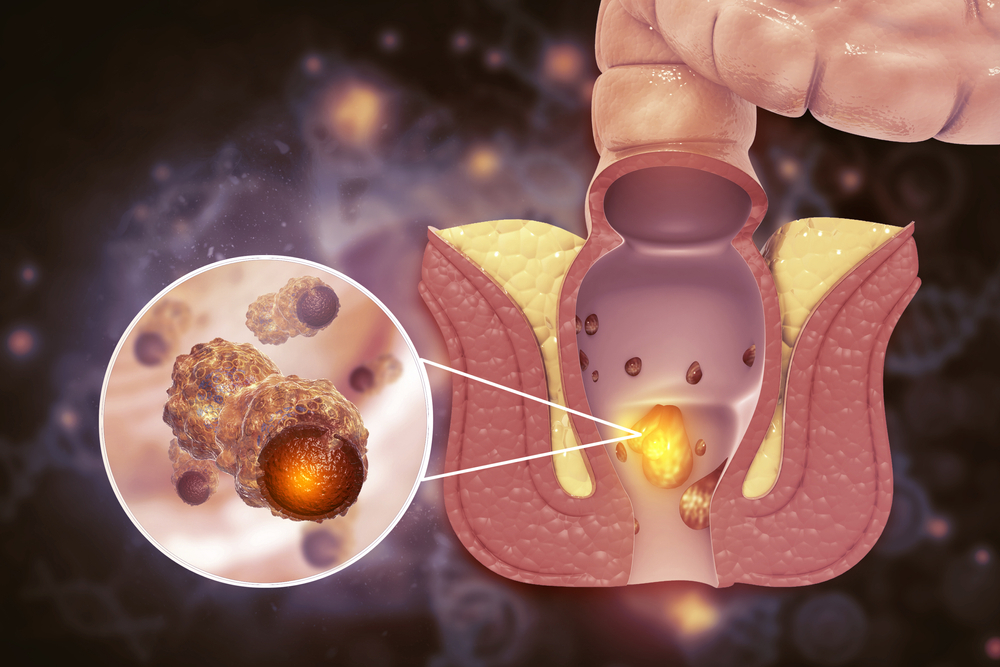If you have heard of dysphagia and tried to research it, you may have seen all the confusing scientific articles that have popped up. If you know someone who has the condition and you are trying to learn the basics, this simple and quick article will explain what it is and how you can help control it while making sure the person who has it is not suffering more than necessary.
What is Dysphagia?
Dysphagia is a medical condition that entails trouble with swallowing. In general, it is more common in adults and older people but can still affect younger people as well. For people who suffer from this condition, it can make it very hard to swallow, consume foods, and get various kinds of liquids down into their stomachs. It can also mean swallowing becomes very painful, especially if they have to force their food down uncomfortably.
Naturally, most people will find it hard to swallow at some point in life, such as when they fail to chew food properly, try to swallow large pills, or endure a bout of tonsilitis, among many other of life’s occurrences. Of course, struggling with swallowing is quite normal on occasion and isn’t concerning – unless it happens frequently. In this case, it’s vital to see a doctor so that they can diagnose and treat the condition.
Causes
Swallowing is not as simple as you might think; it involves a lot of muscles and nerves. With it being such an intense, meticulous process involving many muscles and nerves, just one minor problem or accident can easily damage the throat – with even wear and tear causing damage over a long period of time.
Of course, there are numerous different ways your throat can be affected and damaged, with many more causes of said damage. Ultimately, if you struggle to swallow or have any other throat issues, your best course of action in terms of diagnosis, finding the cause, and getting treatment is to pay a visit to your doctor as soon as your symptoms develop. That way, you may even be able to prevent further problems from developing further down the line.
Symptoms
The main symptoms of dysphagia are:
- Difficulty swallowing
- Pain or discomfort when swallowing
- Food, pills, and medication getting or feeling stuck
- Hoarse throat
- Constant acid reflux – also known as ‘heartburn’
- Bringing food back up
- Vomiting
- Drooling or excess saliva
- Coughing when swallowing
Complications
Unfortunately, like most conditions, there can be some complications. These include:
Choking
If you can’t swallow food, it can be hard to get it back up if you have half-swallowed it, which can then can lead to choking. However, this issue may be alleviated by coughing your food back up or someone performing a successful Heimlich maneuver.
It’s a good idea to research the maneuver and have as many people as you know learn it – you never know when someone might be in need. Alternatively, you and your family and friends could even sign up for a first aid course – this will arm you with vital knowledge needed to help someone when they’re choking, which could save lives.
Weight Loss and Dehydration
Unfortunately, these are some of the most life-threatening problems that can occur for those suffering from dysphagia. Since a person with this condition cannot swallow easily, they are less inclined to eat food. It’s quite often the case that they forgo eating or only eat a little bit so that they don’t have to suffer from the discomfort and pain of swallowing – and that’s if they can even swallow at all; sadly, some sufferers simply cannot swallow.
As a person with dysphagia continues to struggle with their eating and swallowing, they can lose a dangerous amount of weight and end up becoming severely malnourished over time. They can also become dehydrated if they are not swallowing liquids, which only worsens the problem further.
Whilst the issues of malnutrition, weight loss, and dehydration continue, other problems can appear and cause even more complications, including sicknesses and illnesses resulting from a weakened immune system. Furthermore, the sufferer will also start to feel unable to do normal day-to-day activities as they will constantly be tired and hungry due to a lack of calories, energy, and nutrients the body needs to survive.
Aspiration Pneumonia
Another very serious complication that can occur due to dysphagia is aspiration pneumonia. This type of pneumonia can result when a small piece of food is inhaled instead of swallowed or by liquid entering the lungs during inhalation.
As a result, bacteria from the food or liquid that was inhaled can infect the lungs, causing this severe kind of pneumonia that can be fatal if left untreated – especially if the sufferer already has a weakened immune system.
The signs of this illness include:
- Coughing whilst eating and/or drinking
- A wet or gargling-sounding voice
- Difficulty breathing
- Rapid or shallow breaths
If you or someone else you know experiences these symptoms and you or they have dysphagia, you must see your doctor. Should these symptoms be left to progress until they’re severe, it’s better to call your local medical emergency services, as this kind of pneumonia can develop extremely quickly.
How to Help
There are many ways to help prevent and deal with the complications that can result from dysphagia, which are outlined below.
Choking
As mentioned, you can help someone stop choking by performing the Heimlich maneuver – and it has to be done correctly. Whilst this procedure can hurt the person’s ribs or stomach, it is the quickest and best way to help unblock the airways when there’s an obstruction – such as food.
You can also prevent choking by making sure the food you eat is cut into small pieces that won’t get stuck in your throat, or at least would be able to slide down it if you drank some water. Overall, if the food pieces are very small, they may not be as difficult to swallow and would be less likely to block the airways if a person were to choke.
Also, making sure you or the person with dysphagia properly chew food is just as important. If you are taking huge bites of food and not chewing them enough, you are bound to choke at some point – whether you have the condition or not. So, by making sure that the food has been chewed enough, you can prevent it from blocking the airways and reduce the risk of choking.
Weight Loss and Dehydration
Whilst these may seem like two of the scariest complications, there are simple ways to help prevent them. One method can be to try and eat all meals throughout the day – whenever the person feels hungry, they can opt for a small, simple dish that can be cut up and slowly eaten, which is better than nothing. Making sure that these small meals are rich in nutrients is also very important – this could be achieved by crushing up vitamins and supplements powders and adding them to the food.
There’s also another way to add more calories and help a person feel full; you can add food thickeners to most recipes. Thickeners can be used in almost anything, especially goodies like soup, sauces, smoothies, shakes, broths, and even various baked goods.
Food thickeners like flour, corn starch, and potato starch are common choices and are a great way to thicken meals, add texture, and increase a dish’s calorific content. However, there are particular food thickeners available that are specially made for people with dysphagia. For example, one such purpose-made thickening agent is SimplyThick Easy mix, which has been formulated for and tried and tested by sufferers of dysphagia.
Aspiration Pneumonia
This problem can be a hard one to help as there is nothing you can do once its onset occurs. The only thing you can do is seek medical attention – for you or the person suffering – as soon as possible. As with most illnesses, prevention is better than cure, and the ways you can prevent this one from happening are similar to those that can help you avoid choking.
Properly chewing food is vital in preventing food inhalation, which can lead to aspiration pneumonia. People with dysphagia can find it difficult to chew – still, sufficient chewing is one of the best ways to avoid coughing and choking and preventing food and drink from being inhaled into the lungs.
Like with choking, another great way to prevent food and drink from entering the lungs and causing aspiration pneumonia is by making sure everything is cut into small pieces. This helps with chewing, and if you do start to choke, hopefully, the food that’s stuck is small enough to be coughed up or swallowed after coughing instead of being inhaled into the lungs.
Furthermore, consuming liquid food might also help prevent it from being inhaled. While you can still inhale liquid, you are less likely to choke and cough and thus inhale it into your lungs. This is why consuming thickened soups may be more beneficial than having full, solid meals; if you take small, steady sips, it is less likely that you will choke.
Yet another effective step you can take to help prevent food inhalation and this particular kind of pneumonia is this: take your time when eating! If you eat food too quickly, you have a higher chance of food backing up in your throat and even choking, thus causing yourself to be at risk of inhaling whatever it is you are eating. However, when you take your time, you are more likely to know when to stop and when you cannot swallow any more bites.
Final Thoughts
Unfortunately, there is no concrete cure for dysphagia. However, while this article has discussed various ways to help manage the condition and prevent further complications, there are many more out there that you can try.
You can also try other treatments that might hopefully reduce the pain and difficulty you suffer when swallowing, including speech and language therapy. These therapies help you learn new and different ways of swallowing, and could help you discover one that is more suitable for you and your condition.
Naturally, speech and language therapy may not be for everyone as swallowing can still be painful, even if you do learn how to do so in new and different ways. No matter if you benefit from speech and language therapy or not, it’s still vital to do your best in terms of diet, nutrition, proper chewing, and choking prevention – as discussed throughout this guide.
So, if you or someone you know suffers from dysphagia or any other swallowing hardships, consider referring to this guide to help you and them stay on track, manage symptoms, stay healthy, and enjoy a better quality of life overall.
As with any illness or condition, the best plan is to consult your doctor or health provider first. After all, they are the experts, and no matter how much research you do, their knowledge and expertise are bound to help you.







